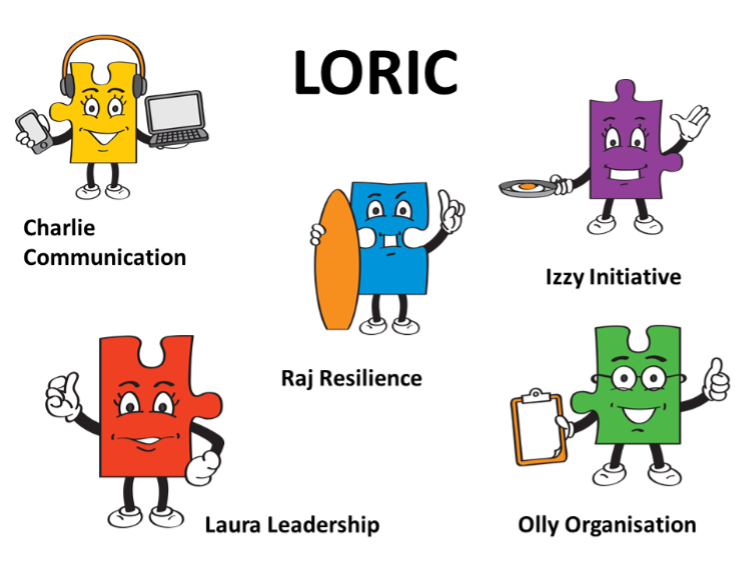

From celebrities to athletes to our own neighbours … and closer to home, ourselves, good mental health is now recognised as important. We know the benefits to a physical wellbeing of a good diet, exercise and visits to the doctor when we have to, but we don’t necessarily know what we can do to build good mental resilience.
At Hall Orchard Primary School, they recognise that as their pupils grow, they will need to have speed of thought, be able to problem solve, to work in teams and to be incredibly resilient. This means developing the confidence of all their children, encouraging them to be ambitious learners and giving them the chance to succeed in our ever-changing world. They achieve this through embedding the teaching of LORIC skills throughout the curriculum.
These are:

The children have developed ‘network hands’: five people they know they can go to for social support to help build resilience. The children are also taught to understand their own emotions so that they can build strategies to calm themselves down, deal with issues positively and resolve conflict. Children at Hall Orchard are encouraged to reflect on how they successfully handled hardships in the past to help them build skills to handle future challenges.
The school recognises the link between good mental health and successful learning. Their recent work has resulted in being awarded a Bronze Medal Health Award from Leeds Beckett University. This coming academic year, each class will have a ‘Worry Monster’ which will give children the opportunity to share worries, doubts and concerns so they can build strategies to talk through and resolve their issues. Staff will also be given further mental health and wellbeing training as part of their ongoing continuing professional development.
Support doesn’t stop when children leave Hall Orchard. Humphrey Perkins offers a wide range of opportunities to develop good mental health resilience. Wellbeing Week is one such initiative. Various activities (like a therapy dog coming into the school) enable students to take a step back from pressure and stress caused by things like exams.
The school has 15 Designated Safeguarding Leaders: staff who students can go to with any worries they may have, including mental health. Knowing that there is someone there to talk to if there is ever an issue relieves a lot of stress from students. During the pandemic, students’ mental health has been supported by a member of the pastoral support team assigned to each year group and there is a dedicated wellbeing room which is intended to be a safe space for students to visit to collect their thoughts in a calm environment.
Humphrey Perkins has received a silver Carnegie Award for its mental health commitment to staff and students.
Support isn’t only for school. We all have times when our mental health isn’t as good as it could be and, just like our physical wellbeing, we need to take care of it. The services at Barrow Health Centre are there to support both types of poor health.
Good mental health means being able to think, feel and react in the ways that you need, and want, to live your life. But if you go through a period of poor mental health, you might find the ways you’re frequently thinking, feeling or reacting become difficult, or even impossible, to cope with. This can feel just as bad as a physical illness, or even worse. Sophie Radford, the health centre practice manager, told Barrow Voice that mental health problems affect around one in four people in any given year. They range from common problems, such as depression and anxiety, to rarer problems such as schizophrenia and bipolar disorder.
Experiencing a mental health problem is often upsetting, confusing and frightening – particularly at first. If you become unwell, you may feel that it’s a sign of weakness, or that you are ‘losing your mind’. These fears are often reinforced by the negative (and often unrealistic) way that people experiencing mental health problems are shown on TV, in films and by the media. This may stop you from talking about your problems, or seeking help. This, in turn, is likely to increase your distress and sense of isolation. However, in reality, mental health problems are a common human experience.
Most people know someone who has experienced a mental health problem. They can happen to all kinds of people from all walks of life. And it’s likely that, when you find a combination of self-care, treatment and support that works for you, you will get better.
Here are some tips from someone who regularly monitors their own mental wellbeing:
Thank you to: Adam Thurgood, Assistant Headteacher, Hall Orchard CoE Primary School; Xander Dolby-Campbell, student Humphrey Perkins School; Sophie Radford, Practice Manager, Barrow Health Centre; our contributor of some personal advice from their own experience (prefers to remain anonymous).